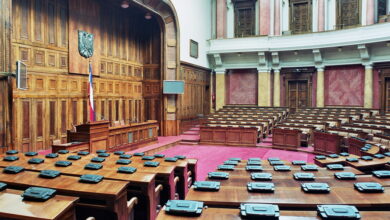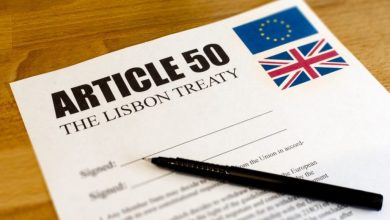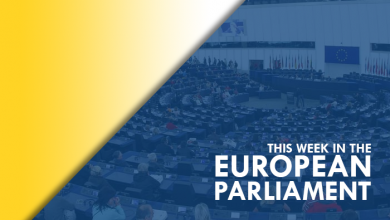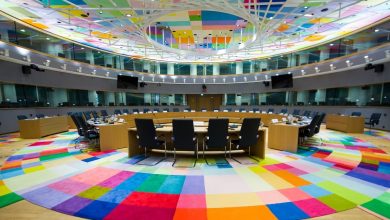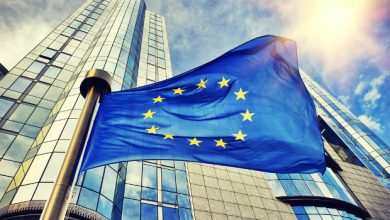The UK’s Forgotten Border: Anguilla Suffering the Consequences of Brexit
How the Caribbean doppelgänger of the Irish border got lost in the negotiations

The Brexit negotiations between the UK and the EU encountered a major stumbling block in the Irish border. The spat revived many tensions thought to be part of the past. Yet so few know about the similar situation faced by Anguilla, a proudly British Caribbean island, about 6,000 kilometres away from London, which is facing disastrous consequences from the referendum.
Anguilla is a small 91km2 island of the Leeward Islands, situated east of Puerto Rico and North of the shared island of Sint-Maarten/Saint-Martin. It is home to about 14,000 Anguillians, all British and EU citizens under Council Decision 2013/755/EU. Anguilla was previously part of the associated states of Saint Kitts-Nevis-Anguilla, but seceded from the country to become a British Crown colony (now British Overseas Territory) again in 1971. The Anguillians are proud to say they fought to remain British, and it is part of who they are nowadays. However, Brexit is perceived as treason from the UK, especially considering that Anguilla did not have a say in the referendum.
A symbiotic relationship strengthened by the EU
The islands of Anguilla and Saint-Martin have an intertwined history that goes all the way back to the first inhabitants of the islands, the Arawak people. When the Europeans colonised this corner of the globe, both islands have often been alternatively under Dutch, French, or British rule.
Many families, even today, live and travel freely between the two islands. The best personification of this is Victor F. Banks, the Chief Minister of Anguilla, being the cousin of Daniel Gibbs, the President of the Collectivité of Saint-Martin. With the UK previously a Member State, the rules of free movement applied to these islands as well. The European single market deepened the links between the two islands, fostering prosperity.
It also allowed a symbiotic development. Sint-Maarten possesses an international airport acting as a regional hub, transiting up to 95% of all the traffic to Anguilla. Unlike the Anguillan airport, the Dutch hub Princess Juliana is long enough to welcome large aircrafts. The French side of Saint-Martin benefits from the provision of excellent healthcare services by metropolitan France, including an MRI scanner, dentistry, and a well-equipped hospital. It is no surprise that many Anguillians and Sint-Maarteners commute to the French side to have access to quality treatments. Anguilla, due to its flat geography, has a lot of space to produce food as well as alcoholic beverages. It is their main export and Saint-Martin is the main destination for these products.
But even more than Saint-Martin, Anguilla also strongly depends on Sint-Eustatius (Netherlands) for over 90% of the island’s fuel. It is not only essential for the production of most of their electricity, but also crucial for the desalinisation process needed to provide drinking water.
Most of the Leeward Islands, 11 of them, make up what is nicknamed the “Caribbean European Union”, soon to be weakened in a similar way as mainland Europe.
Is the EU more attractive than the UK?
As much as the Anguillians are proud to be British, the population feels disrespected by the UK’s attitude of imposing rules without ever asking their opinion. Brexit is the decision that threatens the very own survival of the island. The local government fears that being forced out of the EU will have a much harsher impact than the strongest hurricane ever recorded in the Atlantic, Irma, which severely hit the island in 2017.

The UK’s attitude to the island offers many solutions maintaining an on-going culture of dependency. Whether or not it is intentional or simply a political error, it does not offer many development options to Anguilla. On the other side, the EU’s politic is to create stability and prosperity in the territories part of the Overseas Territories and Countries. The policy applied for the neighbouring countries of the Union is exactly the same. According to Victor F. Banks, the Chief Minister of Anguilla, this behaviour is much more profitable to the island. Hence the general feeling that it is more in their interest to collaborate with the EU than the UK.
Anguilla also depends a lot on international funding. The UK’s Department For international Development (DFID) does not classify Anguilla as eligible to receive financial help. The EU, however, represents 36% of Anguilla’s overall budget for a total of 14 million euros. The subsidy has stopped this year as the first direct consequence of Brexit.
The Eastern Caribbean Central Bank already expressed its concern about the economical effects of all (EU) citizens scattered across the Leeward islands, not only in Anguilla. The EU also contributed much more than the UK to the development of the island thanks to decisions such as trade policies, fisheries, maritime policies, blue growth, cohesion policies, environment and energy. The EU’s policies contributed to strengthen the historical relationship between the islands – now the UK’s decision threatens this special relationship.
Finally, as previously displayed, Anguilla relies heavily on trade and risks seeing a strong deceleration of its economy after losing access to the free movement of goods, putting at risk even their ability to provide enough fresh water.
The benefits for the 27
It is crystal clear that the EU plays a crucial role for Anguilla, but what does Anguilla have to offer to the EU? Much more than one would expect, and more than the UK even acknowledges.
Firstly, there’s the Anegada passage, also nicknamed the Oh-my-god-passage, where all European exports transiting through the Panama Canal must navigate through. It also represents 10% of all US maritime exports. This means that 20% of the world’s marine traffic goes through Anguillan waters. There is a clear strategic importance in controlling this passage that the UK fails to recognise according to Anguilla.

Free movement allows French and Dutch territories to benefit from the high-end tourism that Anguilla attracts. Businesses on the island of Saint-Martin, on both sides, would suffer important setbacks from losing access to the Anguillan market, jeopardising the economical stability of the island.
Finally, the airport Princess Juliana in Sint-Maarten aims to be a regional hub. It generates important wealth to the island and ensures direct links with European cities such as Paris or Amsterdam. Closing borders would redirect the traffic to Puerto Rico or Antigua, weakening the position of EU’s airport.
The available solutions
Now that Brexit is inevitable, the solutions available to Anguilla and the EU are narrowing. Anguillian officials have called on the UK to negotiate for a customs union specific to the Leeward EU islands. Free trade is an essential part of Anguilla’s sustainability. However, London remains deaf to the demands and simply replies that “every measure will be taken”. Hard to believe for the Anguillians
France and Netherlands have also been vague about it, failing to acknowledge the importance of the impact on their territories. Finally, there is one ultimate solution, independence. As much as Anguilla would rather not have to do this, the control over who they can trade with seems today more important than their relationship with the UK.
As much as this is a very specific problem posed by Brexit, it goes to show the UK’s poor handling of its overseas territories after Brexit, and highlights the importance of the EU for its citizens across the oceans. Just like Anguilla, 250 000 EU citizens living in the British Overseas did not have the right to vote for their divorce with the European Union.

